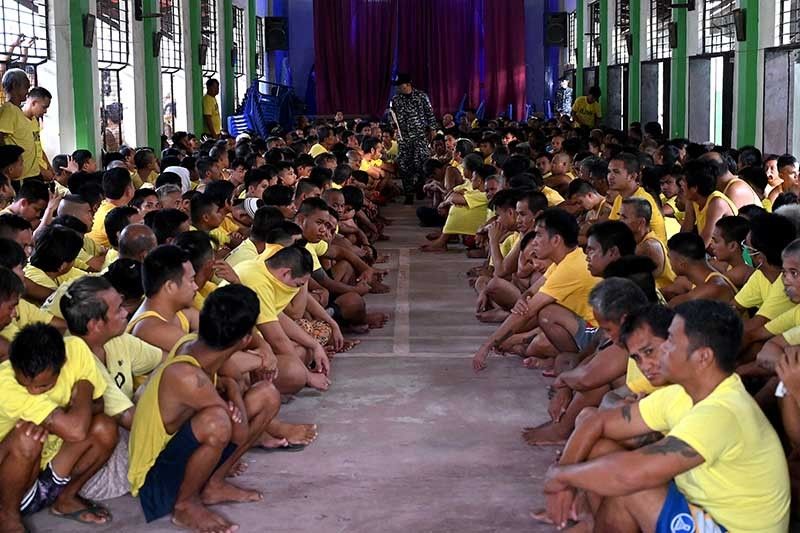New rules aim to reduce prison overcrowding, says DOJ chief

MANILA, Philippines — The new rules for preliminary investigations into criminal offenses aim to reduce prison overcrowding in the Philippines by changing how guilt is assessed.
At a press briefing on September 25, Justice Secretary Jesus Crispin Remulla explained that the new standard for prosecutors will focus on "reasonable certainty of conviction" instead of "probable cause" before cases can be filed in court.
For Remulla, this will prevent “half-baked” cases from being admitted to court which often results in a longer time of incarceration of an accused during pre-trial.
“Ang problema ng ating justice system, makikita mo sa kulungan, sa dami ng taong nakakulong na dapat nakawala na, dapat tapos na ang kaso pero nandun pa rin sila. Hintay na sila nang hintay sa wala,” Remulla said in a press conference after signing a memorandum of agreement on the dissemination of the new rules of preliminary investigation with the Integrated Bar of the Philippines.
(The problem with our justice system is evident in jails, where you see many people still imprisoned who should have already been released, or whose cases should have been resolved. Yet, they remain there, endlessly waiting for nothing.)
“We will try to decongest the jails as much as we can because it's not the place to wait your life out,” he added.
In July, Justice Undersecretary Jesse Andres said the overcrowding of prisons has been reduced to 239% coming from 300%.
However, overcrowding of prison facilities is still present despite the decrease in the congestion rate.
For instance, Manila City Jail, which can only hold 1,200 persons deprived of liberty (PDL) in its official capacity, holds 3,200 PDLs as of July 2024.
Probable cause and reasonable certainty of conviction
In March this year, the Supreme Court said that specific provisions of the Revised Rules of Criminal Procedure will be repealed once the Department of Justice (DOJ) issues its new guidelines for preliminary investigations.
One of the things that will be replaced is the prosecutor’s determination of possible guilt or probable cause.
Probable cause means there’s enough evidence or reason to suspect someone of a crime, based on facts and circumstances that would make a reasonable person believe the accused is likely guilty.
If prosecutors find probable cause, they indict an individual of an offense and file it before the appropriate court.
This determination will be replaced by “reasonable certainty of conviction,” which is defined by DOJ circulars as:
A prima facie case exists based on the evidence-at-hand including, but not limited to, witnesses, documentary evidence, real evidence, and the like, and such evidence, on its own and if left uncontroverted by the accused, shall be sufficient to establish all the elements of the crime or offense charged, and consequently warrant a conviction beyond reasonable doubt.
Remulla explained the new process will require substantial evidence before a case is admitted to court, rather than relying solely on an affidavit.
The Justice chief added that this will make a case immediately ready for trial without the long wait for the scheduling of presentations of evidence.
“From the very beginning, when you file your case, it should already be ready for trial. You can't file a case based on an affidavit and then just wait for the court to schedule a trial,” Remulla said in Filipino.
“Trials might happen once or twice a year, and if they're postponed, people could end up waiting six to eight years without their case being resolved,” he added.
In order to achieve this, Remulla called on strengthening collaboration between prosecutors and law enforcement for more efficient evidence gathering.
He added that it also ensures accountability within the government to deliver efficient justice.
“When the police and prosecutors get used to working together, the instructions become more specific, and the procedures followed by law enforcement improve,” Remulla said in a mix of English and Filipino.
“The level of prosecution is being elevated, and at the same time, law enforcement is made accountable to the prosecution. That’s how our legal system should work in enforcing the law,” he added.
- Latest
- Trending





























